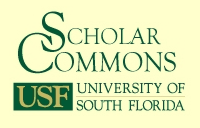Abstract
Current public discourse in Finland concerning reindeer herding has focused on the overgrazing problem and conflicts between herding and competitive forms of land use. Both herders and government administrators agree on the problems of herding, but conceptualize their causes differently. Administrators insist that sustainability in herding is reachable through bioeconomic management that unites biological metrics of sustainable systems with an economic efficiency calculus. However, we found that such policy erodes socio-cultural sustainability at the community level. It also encourages economic rationalization that leads to increased revenues but slower income growth, because it coexists with rising investment costs and decreasing producer prices caused by increased supply. Ecological sustainability is left unstable, because bioeconomic metrics focus only on partial environmental processes. This study sheds light on these intertwined trajectories by analyzing reindeer herders’ efforts to reach both economic and ecological sustainability through neo-entrepreneurial strategies. The study was carried out by semi-structured interviews in 17 enterprises run by both Saami and Finnish reindeer herders. Interviews covered the working of both traditional herding and neo-enterprises and the consolidation of these efforts. The results show that the neo-entrepreneurial adaptation strategies enhance both economic and ecological sustainability, but create problems for socio-cultural sustainability.
DOI
http://dx.doi.org/10.5038/2162-4593.11.1.2
Recommended Citation
Heikkinen, Hannu Ilmari; Lakomäki, Sami; and Baldridge, John. "The Dimensions of Sustainability and the Neo-entrepreneurial Adaptation Strategies in Reindeer Herding in Finland." Journal of Ecological Anthropology 11, no. 1 (2007): 25-42.
Available at: https://digitalcommons.usf.edu/jea/vol11/iss1/2
